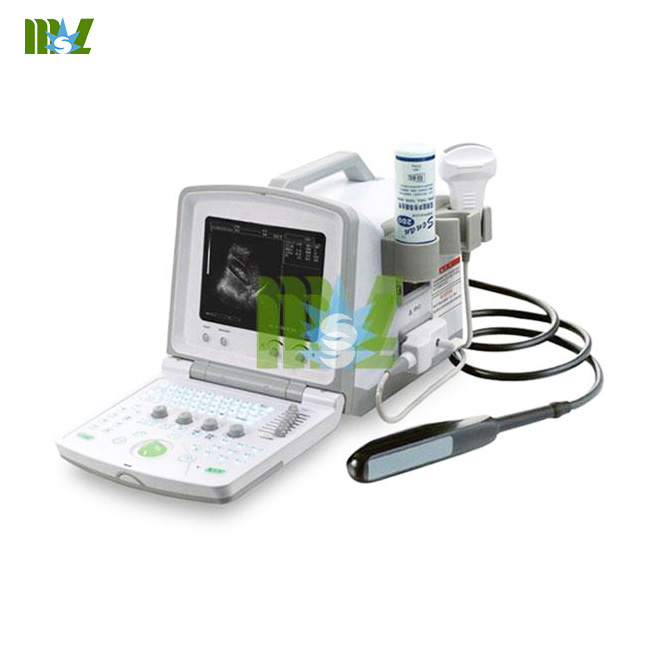Ultrasound (ultrasound machine for sale) used during cryosurgery provides a real-time image of the frozen volume of tissue.Since ultrasound provides a more global view of the frozen tissue than do thermosensors,this imaging technique has come into wide use for monitoring the freeze–thaw cycle,especially for visceral tumors.Ultrasonography offers the possibility of matching the extent of the neoplasm with the volume of tissue frozen in treatment.Frozen tissue is hypoechoic,so the ultrasonic image is black.The edge of the frozen tissue is hyperechoic and appears as a bright line.As freezing continues and the volume of frozen tissue increases,the hyperechoic rim moves away from the probe,leaving the hypoechoic zone behind it.

Therefore the process of tissue freezing can be observed during the cryosurgical procedure.Experience with ultrasound monitoring in hepatic and prostatic cryosurgery is now substantial.The correlation between the ultrasound image and the actual diameter of the frozen tissue is excellent,though it has become evident that ultrasound overestimates the volume of tissue frozen.Much of the frozen volume is obscured by distortions and reflections of the image.Sonography does not provide an image beyond the near edge of the ice because of complete posterior acoustic shadowing (26,27).Some compensation for this limitation can be obtained by viewing the frozen volume from another angle.Three-dimensional (3D) ultrasound machine is in development (28).
The correlation between tissue temperature and the ultrasound image is of considerable importance because effective treatment depends on achieving an appropriate tissue temperature goal.The temperature of frozen tissue cannot be determined from its ultrasonic image.However,the hyperechoic rim of the image is 0 8C and the probe temperature is generally known,so inferences about the steep gradients of temperature in the tissue can be made.For example,using a probe at 160 8C on tissue for 5 min,the 20 8C isotherm is 70% of the distance from the probe to the periphery of the frozen tissue.The 40 8C isotherm,which is commonly used as a goal in tumor therapy,is 60% of the distance from the probe to the frozen boundary.A rapid cooling rate moves the isotherm toward the periphery.
- Home
- All Products
- Ultrasound
- Sonoscape ultrasound
- 4D ultrasound machine
- 3d Ultrasound Machine
- Wireless ultrasound
- Portable Ultrasound Machine
- Color Ultrasound Machine
- Handheld Ultrasound
- Veterinary Ultrasound
- Trolly ultrasound machine
- Digital Ultrasound Machine
- Chison ultrasound
- Home Ultrasound Machine
- Mindray ultrasound
- Bone Densitometer Machine
- Fetal Doppler
- Lab Equipment
- Surgery
- Beauty Equipment
- Vet equipment
- X rays
- Contact MSL




 Price is 8-20% Lower Than Other
Price is 8-20% Lower Than Other






